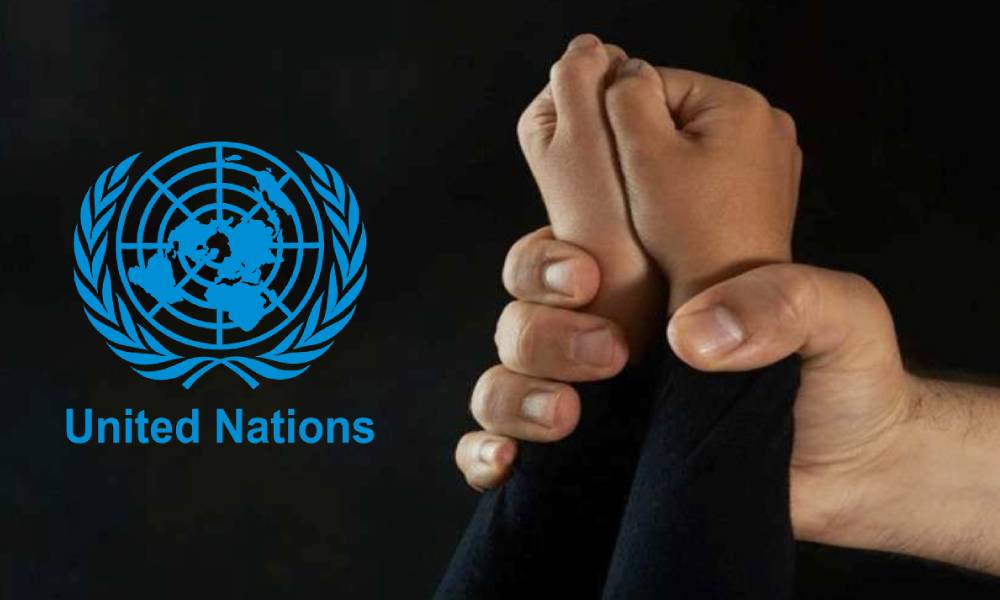
'COVID-19 Pandemic Has Fuelled Slavery, Sexual Exploitation': UN Experts Caution Govts
Others/World, 1 Dec 2020 12:30 PM GMT | Updated 1 Dec 2020 12:42 PM GMT
Editor : Rakshitha R |
Rakshitha an engineer turned passionate journalist with an inclination for poetry, creative writing, movies, fiction, mountains and seclusion. Not a part of the social process but existential.
Creatives : Rajath
A free spirit who find meaning in life with the virtue of creativity and doing job par its excellence, animal lover and traveller by heart.
People who are already facing exploitation on the basis of sex, race, age, disability, religion, nationality and economic status and those who are living without basic amenities such as sanitation and education can be at greater risk of further exploitation, UN experts said.
On Monday, UN human rights experts cautioned that the government should provide stronger measures to prevent exploitation of the vulnerable people as the COVID-19 pandemic has played into the hands of slavers and traffickers.
In a statement issued by over 50 experts, it is said that there is a direct link between the pandemic and socio-economic vulnerability and there are high chances of exploitation. The exploitation can include the hardest and worst forms of child labour or human trafficking and even sexual exploitation, reported Times Now.
People who are already facing exploitation on the basis of sex, race, age, disability, religion, nationality and economic status and those who are living without basic amenities such as sanitation and education can be at greater risk of further exploitation when they lose their jobs, income or land. Hence, the concerned governments should recognize and take care of such vulnerable people.
"If workers don't receive adequate economic, social and other support from governments, without discrimination on grounds of migration and another status, they face a serious risk of exploitation, including being subjected to slavery, servitude, forced or bonded labour, or trafficking in persons. In this regard, we are concerned that these practices have increased in the past months. In some cases, victims are further subjected to ill-treatment, torture, or even disappearance when they are prevented from informing as to their fate and whereabouts and put outside the protection of the law." the statement further added.
The signatories included many important Rapporteurs and Working Groups who report to the UN Human Rights Council and the Board Of Trustees of the UN Voluntary Trust Fund on Contemporary Forms of Slavery, set up by the UN General Assembly in 1991.
Governments should step up and increase their efforts in identifying and protecting victims of slavery and trafficking so that they can access to essential health services, which includes reproductive health services, psycho-social counselling, legal assistance, vocational training, income-generating support and remedies without discrimination.
The social and employment inequalities should also be removed by the governments as these can make some people more vulnerable to slavery and exploitation, international solidary was required to ensure child protection which was adequately funded, the human rights experts said.
"We call upon the Member States and other entities to address the structural causes that contribute to slavery and exploitation and continue providing support to those offering comprehensive assistance to victims, including through contributions to the UN Voluntary Trust Fund on Contemporary Forms of Slavery, which will celebrate its 30th anniversary next year", they said.
The statement was issued ahead of the International Day for the Abolition of Slavery on December 2, which holds significant importance as in 1949 The United Nations General Assembly adopted the first Convention to fight human trafficking.
Also Read: 'My Body, My Business': Thousands Take To Streets In Poland Against Abortion Ban Ruling
 All section
All section














